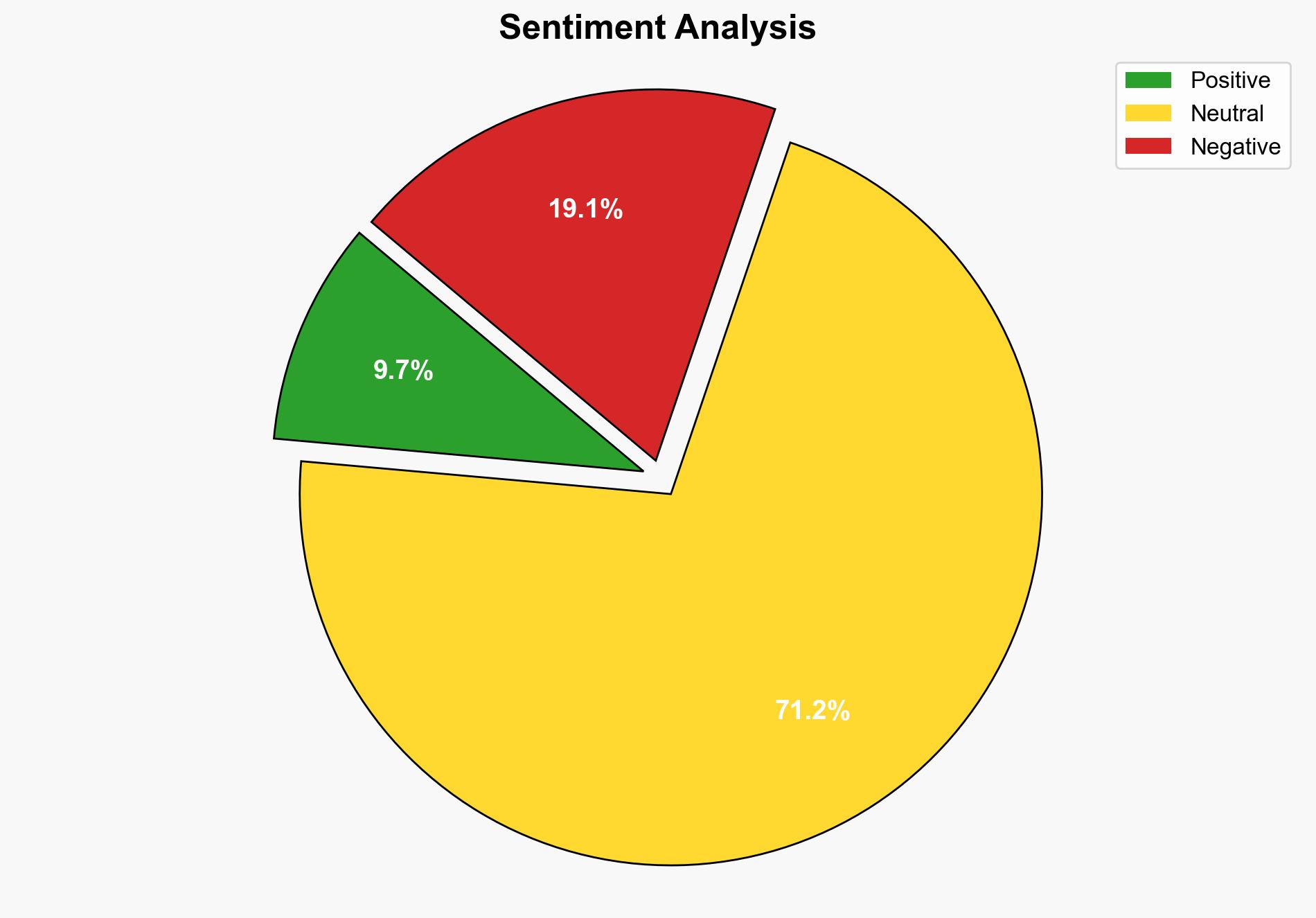New study debunks the ‘genocide’ libel – Israelnationalnews.com
Published on: 2025-09-03
Intelligence Report: New study debunks the ‘genocide’ libel – Israelnationalnews.com
1. BLUF (Bottom Line Up Front)
The most supported hypothesis is that the allegations of genocide against Israel in the Gaza Strip are not substantiated by the evidence presented in the new report. The report challenges the validity of these claims by highlighting methodological flaws and misinterpretations in the data used to support them. Confidence level: Moderate. Recommended action: Encourage further independent investigations to validate findings and promote transparent dialogue between involved parties to mitigate misinformation.
2. Competing Hypotheses
1. **Hypothesis A**: The allegations of genocide against Israel in the Gaza Strip are unfounded, as the new report provides evidence that these claims are based on erroneous data and circular citations.
2. **Hypothesis B**: The allegations of genocide have some basis, but the report attempts to downplay or dismiss these claims through selective evidence and biased analysis.
Using the Analysis of Competing Hypotheses (ACH) 2.0, Hypothesis A is better supported due to the detailed critique of data sources and the identification of methodological errors in previous claims. Hypothesis B lacks substantial evidence in the report to counter these critiques.
3. Key Assumptions and Red Flags
– **Assumptions**: The report assumes that all previous claims of genocide were based on flawed data and that the new analysis is comprehensive and unbiased.
– **Red Flags**: Potential bias in the report due to its origin from a specific geopolitical perspective. The reliance on the report’s authors’ interpretations without independent verification raises concerns about objectivity.
– **Missing Data**: Lack of counter-evidence or alternative perspectives from other credible sources within the report.
4. Implications and Strategic Risks
– **Geopolitical Risks**: Continued allegations of genocide could exacerbate tensions in the region, influencing international relations and potentially leading to increased support for opposing factions.
– **Psychological Impact**: Persistent misinformation could fuel public unrest and deepen divides within and between communities.
– **Cascading Threats**: If unaddressed, the spread of misinformation could lead to broader regional instability and complicate peace efforts.
5. Recommendations and Outlook
- **Mitigation**: Facilitate independent, third-party investigations to corroborate or refute the report’s findings, ensuring transparency and credibility.
- **Dialogue**: Promote open communication channels between Israeli and Palestinian representatives to address and resolve underlying issues.
- **Projections**:
– **Best Case**: Independent verification leads to a consensus on the report’s findings, reducing misinformation and fostering peace talks.
– **Worst Case**: Continued dissemination of conflicting narratives escalates tensions, leading to increased violence.
– **Most Likely**: Ongoing debate with gradual acceptance of the report’s findings by some parties, while others remain skeptical.
6. Key Individuals and Entities
– Danny Orbach
– Jonathan Boxman
– Yagil Henkin
– Jonathan Braverman
7. Thematic Tags
national security threats, misinformation, geopolitical analysis, Middle East conflict





